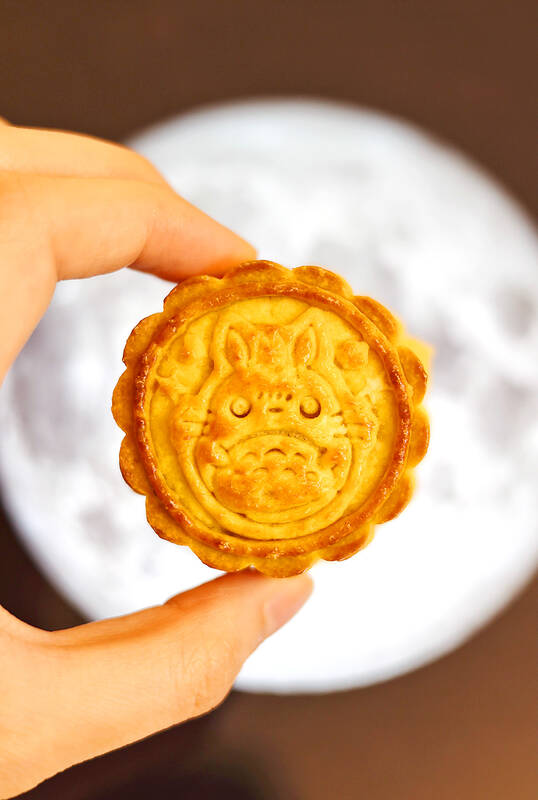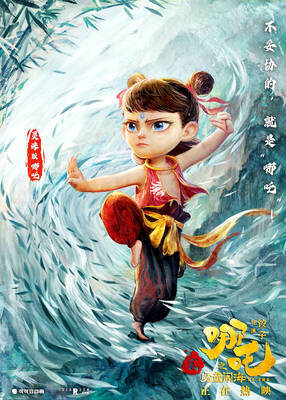對話 Dialogue
清清:明天就是中秋節了,你要不要回家跟家人一起過節?
Qīngqing:Míngtiān jiùshì Zhōngqiū jiéle, nǐ yào búyào huíjiā gēn jiārén yìqǐ guòjié?

Photo courtesy of Unsplash / 照片:Unsplash提供
華華:要啊!我很早就買好高鐵票了。中秋節是華人最重要的三大節之一,可以的話,一定要回家跟家人團聚的。
Huáhua:Yào a! Wǒ hěn zǎo jiù mǎi hào gāotiěpiàole. Zhōngqiū jié shì Huárén zuì zhòngyào de sān dà jié zhī yī,
kěyǐ dehuà, yídìng yào huíjiā gēn jiārén tuánjù de.
清清:我們家今年還是會烤肉,你們家呢?
Qīngqing: Wǒmen jiā jīnnián háishì huì kǎoròu, nǐmen jiā ne?
華華:我家從來不烤肉,只全家一起一邊賞月,一邊吃月餅和柚子,開開心心地聊一晚上的天。
Huáhua: Wǒjiā cónglái bù kǎoròu, zhǐ quánjiā yìqǐ yìbiān shǎng yuè, yìbiān chī yuèbǐng hàn yòuzi, kāikāixīnxīn de liáo yì wǎnshàng de tiān.
清清:蛤?中秋節烤肉是台灣特有的節慶文化,不烤好可惜。
Qīngqing: Há? Zhōngqiū jié kǎoròu shì Táiwān tèyǒu de jiéqìng wénhuà, bùkǎo hǎo kěxí.
華華:話雖如此,但大家都烤肉,引起的空氣污染,確實也是一大問題。
Huáhua:Huà suī rúcǐ, dàn dàjiā dōu kǎoròu, yǐnqǐ de kōngqì wūrǎn, quèshí yěshì yí dà wèntí.
清清:你真環保!那我今年少烤一點肉好了,留點肚子吃月餅跟柚子吧!中秋節快樂!
Qīngqing: Nǐ zhēn huánbǎo! Nà wǒ jīnnián shǎo kǎo yìdiǎn ròu hǎole, liú diǎn dùzi chī yuèbǐng gēn yòuzi ba!Zhōngqiū jié kuàilè!
翻譯 Translation
Qingqing: Tomorrow is the Mid-Autumn Festival. Are you going home to celebrate with your family?
Huahua: Yes! I bought a high-speed railway ticket a long time ago. The Mid-Autumn Festival is one of the three most important festivals for Chinese. If possible, you should definitely go home and get together your family.
Qingqing: We’re going to have a barbecue. What about your family?
Huahua: We never have a barbecue to celebrate the day. Instead, we gather as a family, admire the moon and enjoy mooncakes and pomelos. We spend a joyful evening together.
Qingqing: What? Barbecuing during the Mid-Autumn Festival is a unique festival cultural event in Taiwan. It’s a pity not to do it.
Huahua: That may well be true, but the air pollution caused by everyone barbecuing is a big issue.
Qingqing: You’re really environmentally aware! I’ll have less barbecue this year and save some space in my stomach for mooncakes and pomelos. Happy Mid-Autumn Festival!
生詞 Vocabulary
1. 中秋節 (Zhōngqiū jié) Mid-Autumn Festival
2. 高鐵 (gāotiě) high-speed railway
3. 團聚 (tuánjù) reunion, get together
4. 烤肉 (kǎoròu) barbecue
5. 月餅 (yuèbǐng) mooncake
6. 柚子 (yòuzi) pomelo
7. 話雖如此 (huà suī rúcǐ) that may well be true, but.../ having said that
8. 空氣污染 (kōngqì wūrǎn) air pollution
教材音檔 Audio Files
國立清華大學華語中心提供
By National Tsing Hua University Chinese Language Center:

>> Bilingual Story is a fictionalized account 雙語故事部分內容純屬虛構

A: China’s animated blockbuster “Ne Zha 2” also smashed a box office record recently. B: It’s No. 7 among the world’s best-selling films, grossing more than US$2 billion globally. A: I t has even become the world’s highest-grossing animated film, while the political metaphors in it are causing controversy. B: But who is Ne Zha anyway? A: Ne Zha, often spelled as “Nezha,” is actually a mythical teenage deity with superpowers. A: 中國動畫片《哪吒2》最近也打破紀錄。 B: 該片已衝上影史票房排行榜第7名,全球狂賣超過20億美元。 A: 聽說它甚至是全球最賣座的動畫片,影片中的政治隱喻卻引爆爭議! B: 但哪吒是誰? A: 哪吒的名字常被拼成「Nezha」,是神話中具有超能力的青少年神明。

You enter an old-fashioned detective’s office. The door locks with a click as a radio buzzes: “Rookie detectives, a priceless diamond is missing! Solve the case in one hour.” The room is filled with clues — photographs, coded messages and secret compartments. As the grandfather clock ticks, you and your friends must work to unlock the secrets. This is what escape rooms are all about — immersive adventure games where you solve puzzles and escape the themed setting within a time limit. The concept of “escape rooms” dates back to early first-person video games. In 1988, John Wilson introduced

A: Were there any highlights at the Oscars this year? B: With 13 nods, French director Jacques Audiard’s “Emilia Perez” broke the record for most Oscar nominations earned by a non-English film. A: Wow, it broke the record of 10 Oscar nominations set by Taiwanese director Ang Lee’s “Crouching Tiger, Hidden Dragon.” B: On the eve of the Oscars, Lee was honored with the Lifetime Achievement Award at the Directors Guild of America (DGA) Awards. A: It seems that Hollywood has finally become more diverse. A: 今年的奧斯卡獎有什麼亮點嗎? B: 法國導演賈克歐迪亞的《璀璨女人夢》榮獲13項提名,打破了非英語片紀錄! A: 哇打破了台灣導演李安的《臥虎藏龍》10項提名紀錄。 B: 李安則在奧斯卡前夕,獲頒美國導演工會「終身成就獎」。 A: 看來好萊塢終於比較多元化啦。 (By Eddy Chang, Taipei Times/台北時報張迪)